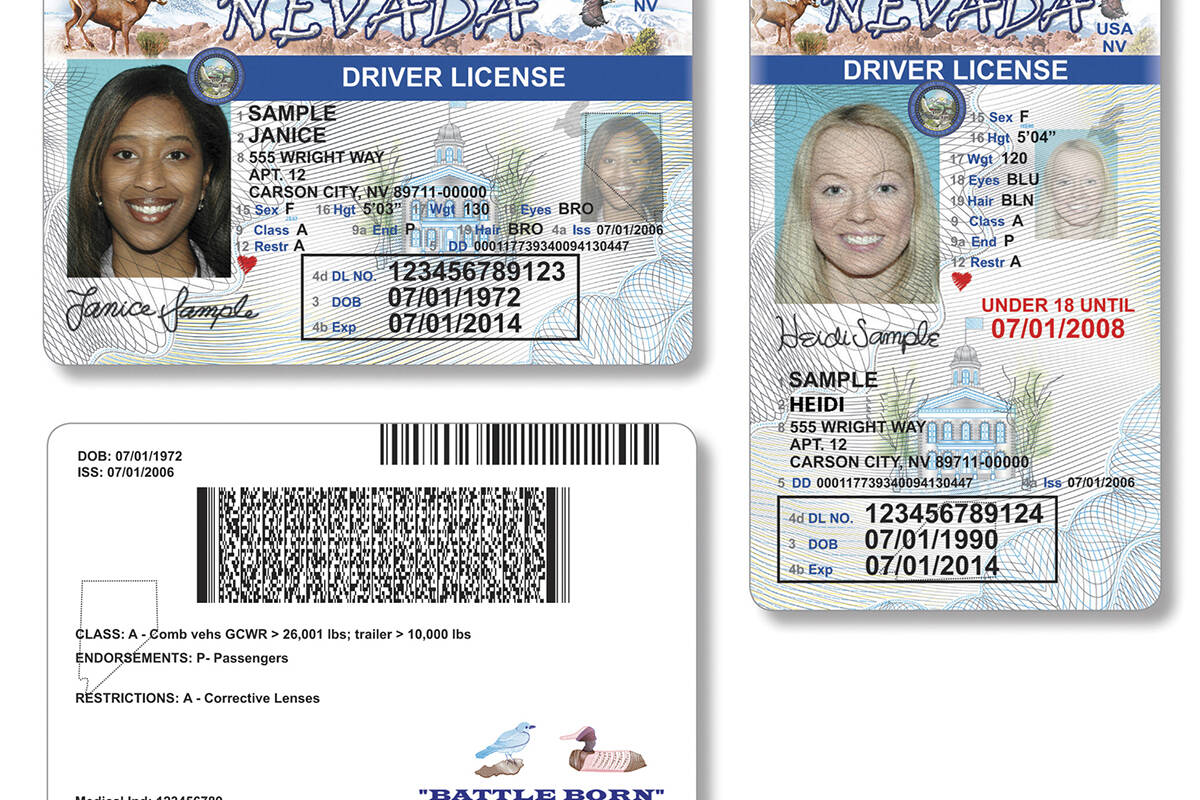STEVE SEBELIUS: Check IDs, but don’t keep the info!

CARSON CITY — Can I see some ID?
If you’re younger than 40, you’ve no doubt heard that question when buying tobacco products at a grocery store or convenience store. Some people who are long past 40 have been asked to show IDs, too.
You’ll need a valid Nevada drivers license, a permanent resident card, a tribal ID or a similar form of identification in order to to get that pack of unfiltered Camels.
But unlike past years, when clerks would check your birthday and do the math to determine your age, the checks have gone high-tech. Since 2021, clerks have been required to use scanning technology that examines the bar code on the back of a drivers license, a code that contains all the information on the front of the license, including your name, birthday, address, expiration date, license number and more.
That change — adopted via Assembly Bill 360 of the 2021 session, sponsored by Assembly members Gregory Hafen II, R-Pahrump, and Melissa Hardy, R-Henderson — was designed to cut down on the use of fake IDs by underage buyers. You can fake the front of a license easily, but it’s harder to fake the bar code.
The point of the law is a good one: keeping underage people from buying tobacco products. And by all counts, it’s worked: Tobacco use among youth in Nevada is down considerably, Hafen says.
But here’s a question: What happens to that information when it’s scanned?
Lobbyists for Nevada’s grocery and convenience stores say their members don’t keep any data permanently. (Some convenience stores may keep it for a short time, as proof they conducted a check in the event there’s a police sting. Clerks who fail to scan a license risk incurring a $100 fine.)
But keeping that information? Selling it to a third party? That doesn’t happen, lobbyists say.
Still, there doesn’t appear to be a law that directly prohibits collection of that information, either. Chapter 603A of the Nevada Revised Statutes regulates personal information collection, but defines covered consumer information as that “collected by an operator through an Internet website or online service and maintained by the operator or a data broker in an accessible form.”
The information gleaned from scanning a license is collected in person, at store counters. And unlike customer loyalty programs or business relationships in which you opt-in to provide your personal information, this is a state mandate on both retailer and consumer.
It’s easy to see how the information could be useful for marketing purposes or for health insurance companies. It just takes a data entrepreneur to see the possibilities.
The good news is there’s a fairly easy fix: an amendment that would prohibit retailers from retaining ID information, except perhaps for a limited time to prove compliance. Add a line that says the information cannot be sold or transferred to a third party, and we’re done.
Representatives of the state’s grocery stores, convenience stores and the Nevada Resort Association (which distributes tobacco to customers on the 21-and-over gaming floor) say they would have no problem with such an amendment. And there are at least two bills pending related to ID checks where that amendment might be germane.
“I’d absolutely support that,” Hafen said.
The only concern — it would be a law prohibiting something that no one appears to be doing currently — is obviated by the reality that just because it’s not happening now doesn’t mean it won’t happen. Better to act now and be sure than to react later. And with apparent unanimity on the subject, the only thing we need is for somebody to write it up.
Contact Steve Sebelius at SSebelius@reviewjournal.com or 702-383-0253. Follow @SteveSebelius on Twitter.